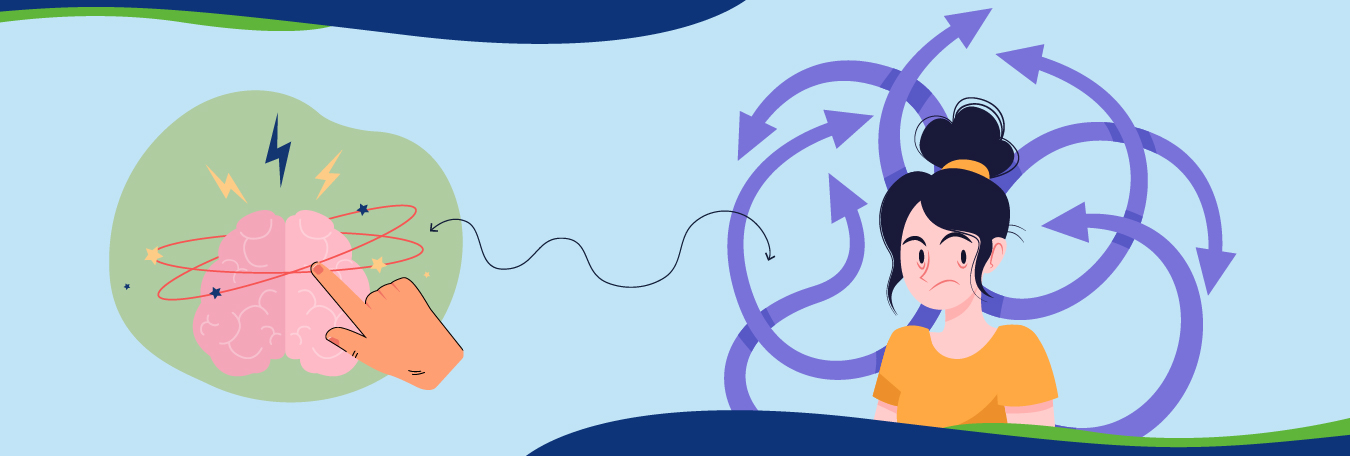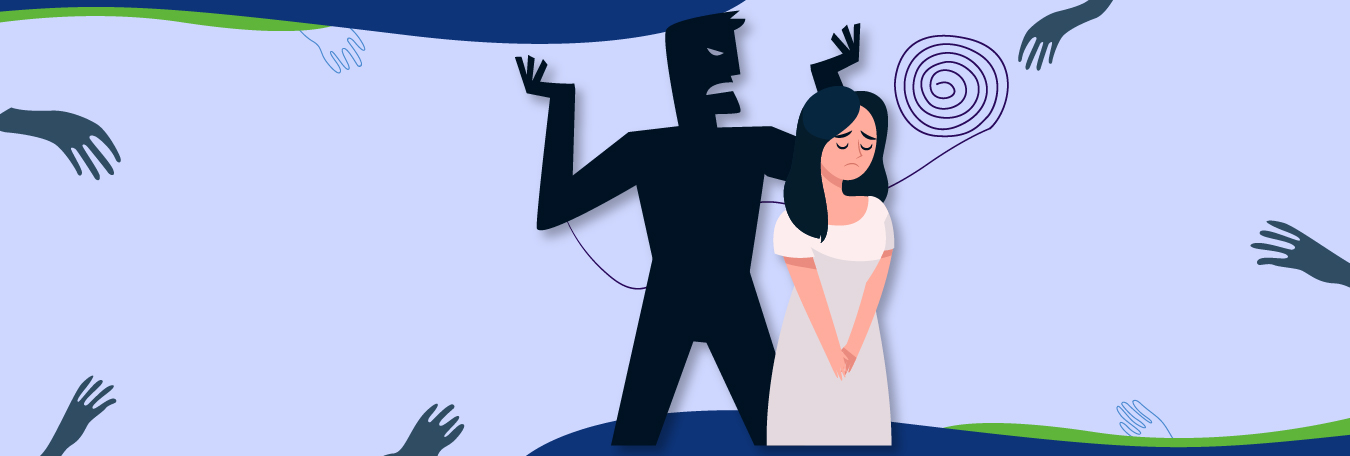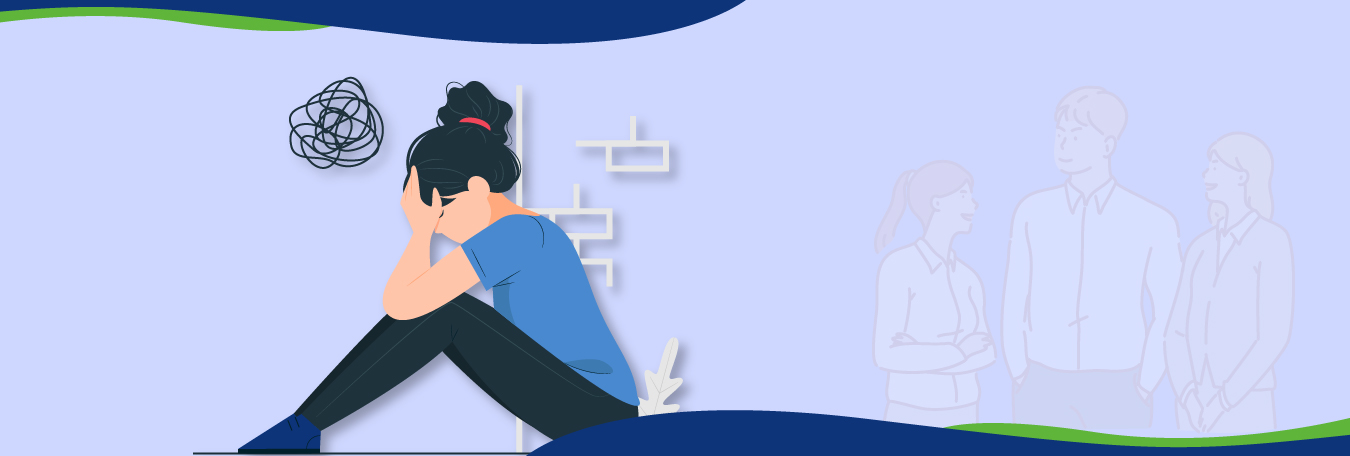Have you ever said to yourself, “Am I hearing voices in my head?” If the answer is a resounding yes, then you need to learn more about auditory hallucinations (The answer to what is it called when you hear voices) that make you ask this question. While these hearing voices are a common experience, they can also be a sign of certain mental health conditions, especially when they start telling you to do things. We are here to discuss why that can be the reason and why you should seek timely treatment. This is also a good place to start looking for answers if you have been hearing faint voices at night and even in the daylight.
What Is It Called When You Hear Voices in Your Head?
Auditory hallucinations, or hearing voices as we call them arise due to a range of different reasons. Sometimes, it is due to mental health conditions such as psychosis, but these can also be induced via issues like stress, depression, or even grief. It can also become a concern when there is a lack of good sleep.
But why would you start to hear voices in your head if you are not suffering from a condition like schizophrenia or psychosis, where hearing voices is the norm? Or you don’t have any other mental condition, such as ADHD. But did you know 15% of the general population tend to experience auditory hallucinations for one reason or another (Swyer & Powers, 2020)?
Read More: What is Double Depression and the Treatment for Double Depression
What Is It That You Hear During Auditory Hallucinations?
When you say, “I hear voices in my head”, you are essentially talking about signs of auditory hallucinations and how they act (yes, they can have personalities of their own):
- These voices are acting like a friend and tend to advise you
- They talk about you, are kind to you, and even complement you
- Have something to say about your actions and behavior
- Will talk about the private things that you have never told anyone else
- Will try to make a daredevil out of you by insisting on doing dangerous things
- These are often accompanied by music or other unique sounds
The symptoms of other mental conditions, such as bipolar disorder, don’t need to accompany these signs of auditory hallucinations. A research study from 2017 evidences how voices in the head can come without any warning or any underlying condition (Walters et al., 2018). This also suggests that you can start hearing voices in your head at any time or without warning. When it comes to hearing voices in your head that arise due to mental conditions, they tend to:
Read More: ADHD and Anxiety: Let’s Discuss The Link and Coping Strategies
- Start slowly and intensify over time, with the end coming suddenly
- Be long-lasting (especially when compared to the auditory hallucinations without an underlying issue)
- Be like they are coming from an external source rather than inside your head
- Complement the delusions that are frequently seen in ailments such as psychosis.
- Get in the way of everyday life by hurting one’s executive functioning
What Causes Hearing Voices in Your Head?
Causes that are both temporary and chronic are capable of inducing hearing voices in your head. As per the experts, the exact mechanisms are not known, but there are a few theories that are in existence explaining the background:
- The auditory network part of your brain consists of the left superior temporal gyrus, transverse temporal gyri (Heschl’s gyri), and the left temporal lobe. These networks can spontaneously activate to induce hearing voices in your head.
- There is an imbalance of neurotransmitters, like serotonin or dopamine.
- 20 percent of people with bipolar disorder hear voices in their heads
- 40% of people with post-traumatic stress disorder (PTSD) hear voices in their heads
- 14% of people with an anxiety disorder, such as OCD, hear voices in their heads
- 10% of people with major depression also hear voices in their heads
- Hearing impairment, such as tinnitus
- Sleep disorders such as insomnia
- Migraine
- Stroke
- Brain tumors or lesions
- An unhealthy lifestyle, such as a lack of sleep or alcoholism.
Read More: Defining Psychosis Supportive Therapy
The Different Types of Auditory Hallucinations
Auditory hallucinations can be separated into two different types: verbal (hearing voices) and hearing sounds or noises. Let’s discuss them:
Verbal (hearing voices)
The phenomenon of hearing voices in your head in the absence of any speaker is a verbal auditory hallucination. The experiences of verbal auditory hallucinations vary from person to person. The experience isn’t the same even for the same person. The experience varies in how you hear them, with what sounds you hear them, and it also goes differently in the context of familiarity or unfamiliarity.
These verbal hearing voices in your head can be positive, negative, or even neutral. Hearing voices in your head can be uncomfortable and distressing, but some people are content when they are talking to their voices. These voices can make you hurt yourself and others, often ending up with people saying, “I am hearing voices in my head telling me to do things”. Auditory verbal hallucinations most commonly affect people with schizophrenia and/or post-traumatic stress disorder (PTSD), but as we have iterated before, can also exist on their own.
Hearing with sounds or noises
Auditory hallucinations also come in the shape of animalistic sounds, echoes from nature, and noise pollution, among other sounds. They can come from anywhere and at any time, and from anywhere in the space around you or in your mind.
Read More: A Complete Guide To The Signs Of PTSD In Teenage Girl

Is It Normal to Hear Auditory Hallucinations at Night?
Have you been hearing voices when falling asleep, or hearing faint voices at night, even when you are not sleeping? If the answer is yes, then there is still nothing to worry about. You see, there are two different periods during which you can experience or you can start hearing faint voices at night: One is called hypnogogic hallucinations, which is when you experience auditory hallucinations just before or when you are falling asleep. The other one is called hypnopompic hallucinations, which are essentially you hearing voices that wake you up.
This is pretty normal to experience, as 70% of the general population has experienced this at least once during their lifetime. If these hallucinations persist for longer periods or start to happen when you are wide awake, it is probably some mental health or neurological condition. You’ll probably need prompt treatment, such as psychiatric medication management, and the next section focuses on exactly that.
Treating Auditory Hallucinations
How you should seek treatment when you are hearing voices in your head depends on the cause. Then you can select one or do a combination of these to treat the auditory hallucinations:
Psychotherapy
It is a form of therapy that involves talking to a patient to resolve issues related to mental health. One of the greatest examples of this therapy is cognitive behavioral therapy, which can help you learn how to modify how you experience auditory hallucinations as a short and goal-based therapy. There is also hallucination-focused integrative treatment (HIT), which involves combining techniques from cognitive behavioral therapy, psychoeducation, coping training, rehabilitation, and medication that specifically focus on auditory hallucinations.
Medication
There are two types of medication that can help treat auditory hallucinations. Neuroleptics (antipsychotics) and Psychotropics. Antipsychotics such as Clozaril are predominantly used for ailments like psychosis that can help decrease the frequency and severity of auditory hallucinations, but can have side effects. Psychotropics are essentially things such as mood stabilizers or antidepressants that help treat auditory hallucinations in people with severe depression or mania.
Read More: What There’s To Know About Existential Psychotherapy?
Lifestyle changes
Lifestyle changes such as getting enough quality sleep, following a regular sleep schedule, avoiding alcohol and certain drugs, and medications can tremendously help decrease the frequency of auditory hallucinations.
End.
If you are still asking questions such as, “Why are there voices in my head?” then you should seek treatment at Inland Empire Behavioral Group, as we have treatment options that are mentioned above and alternative ones, such as telepsychiatry. Book an appointment today.





